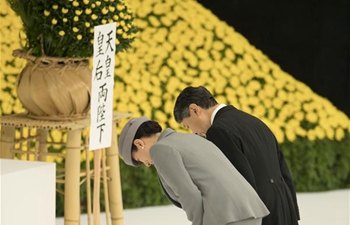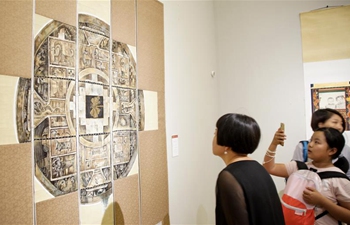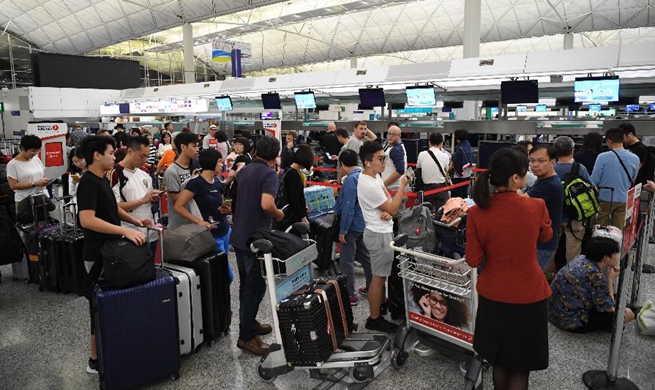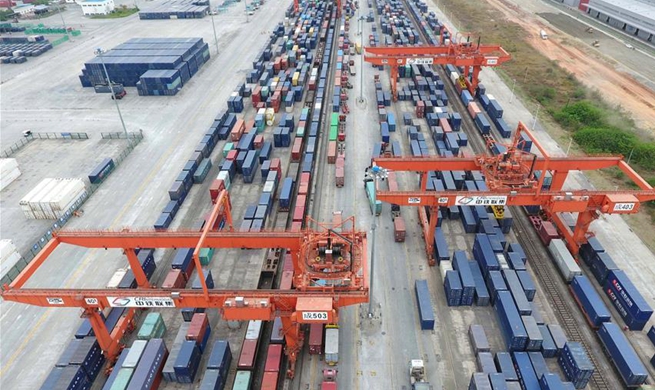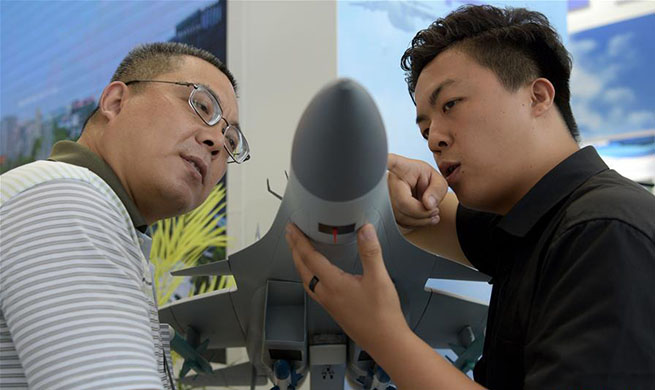BUENOS AIRES, Aug. 15 (Xinhua) -- The plunge of both the Argentine peso and the country's stock market after the outcome of the primary elections could intensify in the coming days, generating a financial outlook that could compromise the next government even further, said economist Esteban Mercatante.
In an interview with Xinhua, the author of the book "The Argentine economy in its labyrinth," analyzed the behavior of the local financial market after the results of the primary elections, in which the opposition garnered 47.65 percent of the vote, compared to 32.08 percent for the ruling party.
After the elections showed a clear voter tendency in favor of presidential candidate Alberto Fernandez and his aspiring vice president candidate and current senator Cristina Fernandez, the U.S. dollar jumped more than 20 percent while the domestic stock market plummeted 38 percent, as did shares of Argentine companies on Wall Street.
"The scenario occurred in the polls had never been foreseen before, which was a difference of 15 points in favor of the opposition, and for this reason, we are seeing an even more distant possibility of the reelection of (President) Mauricio Macri, and this caused a very strong response in the markets," Mercatante said.
"Argentine companies in New York (Wall Street) devalued close to 60 percent, the U.S. dollar rose 20 percent in a single day; the Central Bank raised interest rates by 10 points and acted a little slowly, but despite that it couldn't control the dollar very much," he added.
In Mercatante's eyes, it is likely that in the next few days, Argentina will face new and strong turbulence in the exchange market, with "tools that are more and more limited" for containing the situation.
"The current government and the Central Bank have managed to contain the dollar in previous moments of crisis, with policies like the raising of interest rates and interventions in the market with currency auctions and in the futures market, but today it has very limited tools to control the situation," he said.
The economist predicted higher inflation over the next months as a consequence of the devaluation of the peso and indicated that the markets are also responding to the statements made by the opposition, anticipating the devaluation and depreciation of Argentine assets.
Faced with a new government, regardless of its political orientation, the expert believed that there are important challenges in economic matters as to how to deal with the debt to the International Monetary Fund (IMF) and private investors, as well as the large "ball" of liquidity notes (Leliq) issued daily by the Central Bank.
President Mauricio Macri announced on Wednesday a package of economic measures aimed at providing relief to the public after the economic turmoil after the primary elections on Sunday.
The current government maintains a policy of fiscal correction until full convergence is achieved, combined with a line of financing from the IMF for 56.3 billion U.S. dollars.
Argentina accumulated an inflation rate of 22.4 percent in the first six months of the year, together with an unemployment rate of 10.1 percent and a fall in the manufacturing industry of 9.4 percent compared to last year, according to official data.




